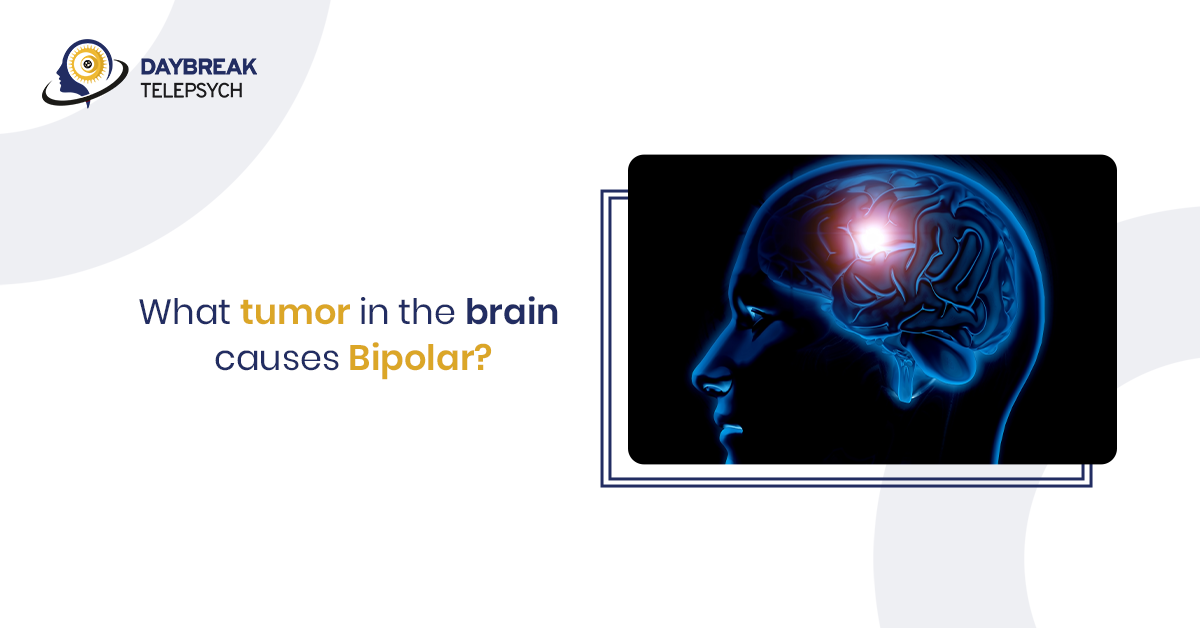Bipolar disorder is a mental health condition characterized by extreme mood swings, including episodes of mania and depression. But can a brain tumor trigger bipolar-like symptoms? Surprisingly, yes. Certain brain tumors can significantly affect mood, personality, and behavior, sometimes mimicking the symptoms of bipolar disorder.
In this article, we will explore which brain tumors can cause mood disturbances and how they impact mental health.
Can a Brain Tumor Cause Bipolar Disorder?
A brain tumor is an abnormal growth of cells in the brain. Depending on its location, it can interfere with brain function, including emotional regulation. Tumors in specific regions, such as the frontal lobe, temporal lobe, and pituitary gland, can lead to mood instability, impulsivity, or emotional outbursts—symptoms that may resemble bipolar disorder.
Which Brain Tumors Affect Mood and Behavior?
Some brain tumors can cause significant emotional and behavioral changes, including mood swings and personality alterations.
1. Frontal Lobe Tumors
The frontal lobe is responsible for decision-making, impulse control, and emotional regulation. A tumor in this area can cause:
- Sudden mood swings
- Impulsive or reckless behavior
- Difficulty regulating emotions
- Increased irritability or aggression
Patients with frontal lobe tumors may exhibit behavior changes that resemble bipolar disorder or frontal lobe syndrome.
2. Temporal Lobe Tumors
The temporal lobe processes emotions and memories. A tumor in this region may lead to:
- Depression and persistent sadness
- Memory problems
- Emotional instability or sudden outbursts
Since the temporal lobe plays a key role in emotional processing, tumors here can contribute to bipolar-like symptoms or other mood disorders.
3. Pituitary Tumors
The pituitary gland regulates hormone production. A tumor in this area can cause hormonal imbalances, which may lead to:
- Severe mood swings
- Anxiety and panic attacks
- Manic or depressive episodes
Because the pituitary gland controls various hormones, pituitary tumors can mimic bipolar disorder by causing extreme emotional instability.
How Do Brain Tumors Influence Mood and Behavior?
Brain tumors can alter emotions and personality through various mechanisms, including:
1. Increased Brain Pressure
Tumors pressing on brain structures can disrupt emotional stability, leading to mood swings and personality changes.
2. Neurotransmitter Disruptions
Brain tumors can interfere with dopamine, serotonin, and norepinephrine, chemicals that regulate mood. These disruptions can cause mania, depression, or anxiety, mimicking psychiatric conditions.
3. Hormonal Imbalances
Hormones play a crucial role in mood regulation. Tumors affecting the pituitary gland or hypothalamus can cause hormonal disturbances, leading to extreme mood fluctuations.
4. Damage to Emotional Centers
Tumors in the frontal lobe or limbic system may impair emotional regulation, resulting in unpredictable mood changes, irritability, or aggression.
Can Brain Tumors Cause Other Mental Health Disorders?
Besides bipolar disorder-like symptoms, brain tumors can also contribute to other psychiatric conditions:
1. Obsessive-Compulsive Disorder (OCD)
Tumors in the frontal lobe or basal ganglia can cause obsessive thoughts and compulsive behaviors, mimicking OCD.
2. Depression
Tumors affecting the limbic system or temporal lobe may lead to deep, persistent depression.
3. Hallucinations and Psychosis
Some brain tumors, particularly in the temporal lobe, may cause hallucinations, delusions, or psychotic episodes, resembling schizophrenia.
These overlapping symptoms can make diagnosing a brain tumor versus a psychiatric disorder challenging.
End-Stage Brain Cancer and Personality Changes
As brain cancer progresses, mood and personality changes may intensify. End-stage brain cancer symptoms can include:
- Severe mood swings
- Emotional detachment
- Increased aggression or withdrawal
- Confusion and memory loss
These symptoms arise as the tumor enlarges and affects more brain regions.
Can Brain Surgery Affect Personality?
Surgical removal of a brain tumor can sometimes lead to personality changes. The effects depend on the tumor’s location and the extent of brain tissue affected.
Potential Post-Surgery Changes:
- Emotional Instability – Temporary anxiety, depression, or mood swings during recovery.
- Cognitive Adjustments – Changes in thinking, memory, or concentration.
- Long-Term Personality Shifts – Some individuals may experience lasting alterations in behavior or emotional regulation.
Recovery varies for each patient, with some regaining full emotional stability and others experiencing lasting effects.
How Are Brain Tumor-Related Mood Changes Treated?
Treatment depends on the tumor type, size, and location. Options include:
- Medication – Mood stabilizers, antidepressants, or anti-anxiety medications may help manage symptoms.
- Surgery –Surgical treatment of the tumor if appropriate.
- Radiation and Chemotherapy – Depending on the tumor, these therapies can shrink or eliminate tumors, potentially reducing mood disturbances.
- Psychotherapy and Counseling – Mental health support can help individuals and families cope with emotional challenges.
Understanding the connection between brain tumors and mood disorders can lead to early diagnosis and better management of symptoms.
Final Thoughts
Brain tumors can significantly impact mood and behavior, sometimes mimicking bipolar disorder. Tumors in the frontal lobe, temporal lobe, or pituitary gland are most likely to cause emotional instability. If someone experiences sudden mood swings, personality changes, or unexplained emotional distress, seeking medical evaluation is crucial. Early detection and treatment can improve outcomes and overall well-being.Contact us for more information.
FAQs
Can brain surgery change personality?
A: Yes, depending on the tumor’s location, surgery may cause temporary or permanent personality changes.
What are signs that a brain tumor is affecting emotions?
A: Symptoms include sudden mood swings, impulsive actions, depression, anxiety, or aggression.
For expert psychiatric care and support, contact Daybreak Telepsych for guidance on managing bipolar disorder and related conditions.

